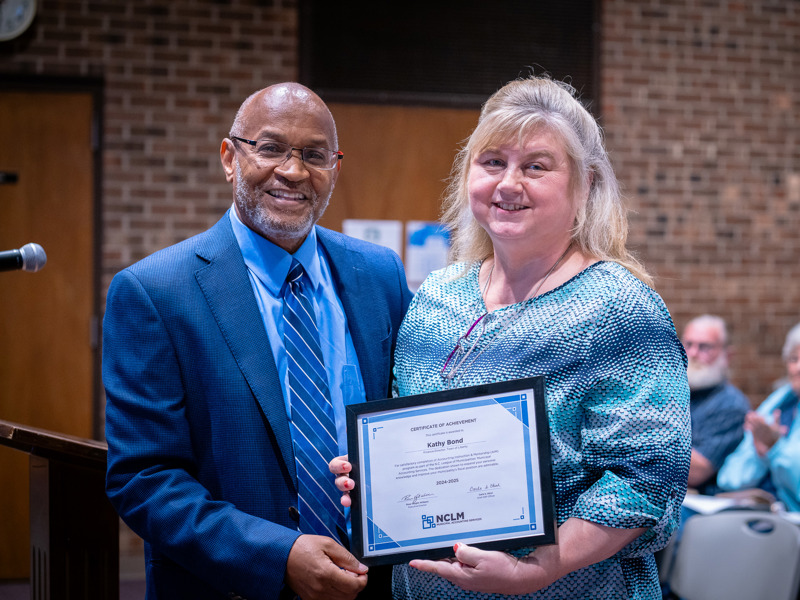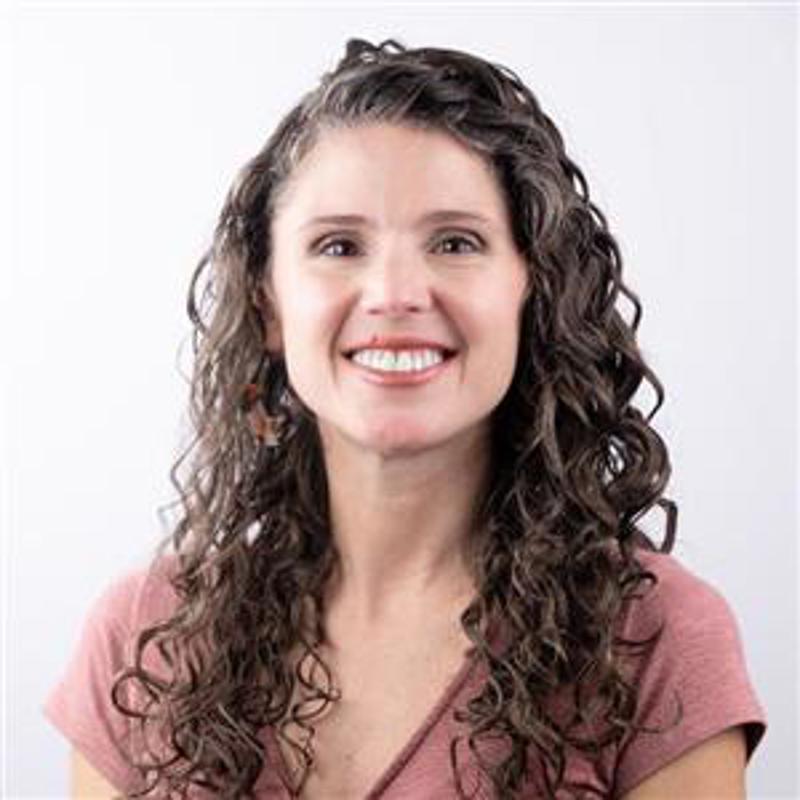Building A Firm Financial Future
Q3 2025 | Vol. 75, Issue 3
The League’s Accounting Instruction & Mentorship (AIM) program recently marked its one-year anniversary, with the first cohort of 18 towns completing the yearlong training and mentorship experience. Designed to support small towns that often lack access to finance-specific resources, AIM provides hands-on guidance, catch-up support, and monthly mentoring to help local staff build self-reliance and establish strong financial practices. Participants say the program has given them the knowledge, support, and confidence they need to manage their town’s finances more effectively. With a new cohort launching in summer 2025, the League continues its commitment to helping towns succeed from the ground up.
Recognizing a need
One year ago, the League launched the Accounting Instruction & Mentorship program (AIM) through its Municipal Accounting Services department. The goal: to strengthen the financial health of municipalities that historically haven’t had the resources or support needed to thrive.
The program works towards this end by providing towns with customized instruction on general accounting procedures that includes practical guidance and resources to keep finance departments on track. Additionally, catch-up bookkeeping and auditing support can be provided for towns that may be behind. Beyond simply supplying towns with resources and tools, AIM offers hands-on learning with a dedicated mentor, creating space for finance officers to ask questions tailored to their unique circumstances. The program is designed to start by helping towns get their finances up to date, but then to move beyond that by offering long-term solutions that position them for future success.
“The AIM program has been a positive experience for participating towns, not only helping get their financial operations up to date, but also providing valuable education, training, and tools staff can continue to use,” Carla Obiol, League Chief ARP Officer, said.
In small towns, many finance officers are taking on this role for the first time and may not have received specialized training in government finance. Joel Killion, town administrator and CFO of Bailey, took on both roles two years before joining the AIM program. He described much of his early experience as on-the-job training, with little outside support.
“When you move into a new role … you are always concerned with ‘Am I giving this my best?’ … When I came into these roles, I didn't know who I could call, and I was having to figure a lot out on my own, Killion said. “When you're out on the front lines and in the trenches and you feel like you're alone, it’s hard to do your job.”
This gap in support is exactly what AIM was created to fill—offering assistance and training to help town staff start off on solid footing.
Tailoring the experience
Launched in summer 2024, the program’s first cohort of 18 towns is now completing its first year. Among those who joined the first cohort are Liberty, Bailey and Aurora.
Each town committed to a one-year program that would walk through an extensive accounting manual and provide hands-on training. League mentors met with towns at least once every month to walk through various topics and discuss best practices for financial tasks.
Kathy Bond, Liberty’s finance officer, said she immediately saw the value in joining the AIM program. Most training courses, she noted, are geared toward larger towns and do not often address the specific situations experienced by small communities. Bond shared that one of the most valuable parts of the program for her was simply the ability to ask any questions she had and to have someone who was willing to help provide an answer.
“I didn't feel like I ever asked a stupid question. I felt like every question was validated and the response, if they did not know, they were finding out for me and getting that information back to me,” Bond said. “That means a lot. It's nice to be able to have somebody that you can call.”
In 2024, Aurora town clerk and finance officer Judi Lannon faced a tough situation. The town was short-staffed and had gone years without securing an auditor, falling behind on audits.
“I needed a lifeline,” Lannon said. “My audits were late, and I was getting all kinds of inquiries. I was reaching out all over the place.”
Knowing Aurora’s situation, Lannon’s contact with the League told her about the newly formed AIM program, offering it as an opportunity to get back to the basics of managing the town’s finances.
“It's taken me as a clerk finance officer back to the elements of what I need to be focused on,” Lannon said. “That had to happen in order for the Town of Aurora to move forward like it should and function like it should as a municipality.”
Building confidence
After the first year of the program and the completion of all 12 chapters of the AIM accounting manual, the League is seeing meaningful progress from participating towns. Town staff are graduating from the program with a solid foundation of financial instruction, armed with the knowledge and best practices to build towards the future.
“The AIM program has been beneficial to our participants because for many of them, it’s the first time someone has offered to help them one-on-one and in a sustained and personal way,” Sharon Edmundson, League Director of Municipal Finance Programs and AIM mentor, said. “The tailored instruction and in-person visits have boosted their confidence and made them feel like someone in Raleigh cares about them. I believe we made progress in every town in which we worked.”
Town staff have echoed this sentiment, sharing that the program not only taught them what to do but also gave them the confidence to keep learning and growing in their positions.
“AIM has gotten me to a point where I'm much more comfortable, and a lot of that has to do with how they would explain things, how they would help with things, how they were patient enough to get you to where you understood,” Bond said. “It’s very encouraging and you don't feel alone—that's the main thing, is that I don't feel like I'm by myself in this.”
“To know that I have someone I can call. Makes all the difference in the world,” Killion said. “Going through [AIM] has allowed me to know what I'm doing well, what I can sharpen on, and as a result, each time we're done with our training, I feel a little bit more confident.”
With a new cohort launching this summer, the League is committed to walking alongside town staff across the state, ensuring they have access to a wealth of financial knowledge, as well as the tools, training and support needed to succeed.







